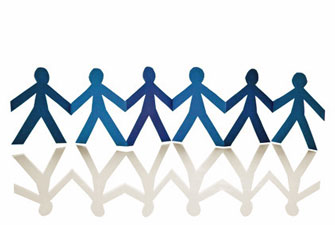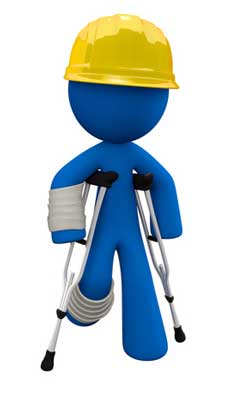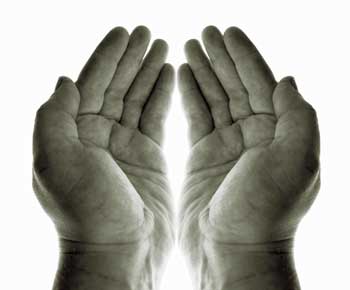



Featuring a doctor and three patients and lasting all of eleven minutes long, this Canadian film just out might be ideal to help your family and friends understand Chronic Fatigue Syndrome a bit better.
People who could be your neighbor anywhere describe the human experience of having chronic fatigue syndrome. There’s something about seeing real people with ME/CFS that is so impactful.
Those of you who are former ‘go-getters’ will empathize with the woman, who after describing herself as on the go all the time pre-ME/CFS, said the worst thing for her was the need to sleep, sleep, sleep.
Family members will nod their heads as another woman talks about her husband doing all the cooking, cleaning, laundry, and grocery shopping.
Everyone with ME/CFS will understand when a woman, flat on her back, asks with some exasperation, “Why would I choose this isolating existence” and relates a doctor telling her, “Look at all these (other) people; they’re really sick!” as we watch another woman with ME/CFS stop halfway up her stairs to rest.
Anchoring all of this is Dr. Eleanor Stein, a psychiatrist who’s had ME/CFS for over 25 years, who calmly describes the medical experience of ME/CFS.
She immediately goes to the core symptom: post-exertional malaise. She then hits all the rest: the unrefreshing sleep, the cognitive problems, and the other symptoms you all know so well.
Later, she states, “Don’t Give Up!” and states that most people can get a little (or a lot) better with the self-management tools we have right now.
Ameliorating Loss
We all want ‘the cure’ but in the meantime there’s the day-to-day stuff in life to take care of.
Loss of Purpose
“My Life Has Become Very Quiet”
I appreciated Dr. Stein’s comments about the heavy emotional costs ME/CFS exerts and wonder how could it not, when, as she notes, it deprives people of their ability to use their hard-won skills, to be the fathers and mothers they wanted to be, to be the breadwinners they were.
Dr. Stein talks about the ‘loss of purpose’ that’s endemic in people with this disorder. They were contributors, and now that ability to contribute seems to be gone. What a void is left! And how does one fill up that void?
One woman in the film asked how to go from being an “active, hardworking woman connected with people every day” to being mostly isolated and alone in her house for days on end.
These are the central questions for many people with ME/CFS.
What “Falls” There Are
The adjustments in status and functionality can be incredible.
I recently heard of woman with a PhD in physics who’s replaced physics with knitting, and is happy to be able to knit again after years of being essentially unable to do anything. I always turn to Mary Dimmock’s son who was traipsing across Asia by himself pre-ME/CFS and is now confined to his house. Then there’s Jamison, the former weightlifter, who had to have his mother drive him to see the doctor. The stories go on and on. So many people have stories that can make your mouth gape open.
As Shakespeare said, “What a fall there was,” and these indeed are falls of Shakespearean magnitude.
That’s one of the problems ….
Stigma
The huge ‘falls’, the almost unheard of lack of energy is just too much for many, and that surely drives the stigma; the lack of belief from the medical community and from friends and family. People cannot believe (and it’s understandable) the sheer degree of struggle it takes to do tasks so simple for everyone else; the limitations that are present do not compute, not for family members nor for doctors. Only the person with ME/CFS understands.
Do What Makes You Feel Better
Dr. Stein’s main recommendation is to evaluate what things make you feel better and what makes you feel worse and then do what makes you feel better. If that prescription sounds easy it’s not. You have to throw away the demands of others and the demands we put on ourselves to do that and that’s very difficult, but it’s helpful.
She also notes that group settings help people remove the doubt that comes with ME/CFS as people meet others with similar problems. Dr. Stein’s (free) manual contains, among many other things, a way to create groups and benefit from them.
I consider these four ME/CFS patients and ourselves the group for now, and I say, “well done” to them.
If the video is not showing up for you on the blog you can find it here.
- Check out the how the film, which was inspired by the filmaker’s mother, came to be made here.





 Health Rising’s Quickie Summer Donation Drive is On!
Health Rising’s Quickie Summer Donation Drive is On!



FYI, Dr Ellie Stein is a psychiatrist not a psychologist. A psychiatrist is a medical doctor who goes on to specialise in psychiatry.
Thanks for that Tom. She is indeed a medial doctor.
Ooops. Make that “medical.”
Fixed….
Well done indeed! Food for thought.
Excellent. I wish I lived in Calgary so I could see Dr. Stein. She is awesome.
I’ll have to get her manual and perhaps get a support group going here in Ottawa ( or is there one that I don’t know about?).
You’ll probably see her at the Conference. She’s been a every one I can remember I believe.
The one single thing that gets the best results is a drastic or dramatic change of diet to a Paleo or Atkins high protein type of diet.
That’s not to say diet was the primary cause.
It appears to work due to the location of the immune system as well as the high nutrient density.
Some claim it is curative.
I have always been functional, to a degree, if not, I would have the inspiration and will power to do a drastic diet.
Although, I have had no choice but to eat better than ever before, in order to continue to function, to a degree.
Also, hypoglycemic diets too. Appx 40% of all CFS /ME /FM patients are carb intolerant
This is wonderful. Is this going to be available somewhere and what is the address to give to others to access?
Thank you to all involved in creating this wonderful film.
How can I watch this film ? Anyone no?
It’s not showing up on the blog? It should show up in the middle of the blog. You may want to update your browser (IE, Google Chrome, Firefox ???) and see if that helps.
As a single disabled mom of two young kids, “Mom needs to lie down now” is something I unfortunately say very often. I can resonate with the statement about not being able to use my (career)skills or be the parent I want to be. And I am so dependent on my family for money, and cannot reciprocate as much as I want to in my friendships. Right now I can’t just follow the advice to do what I like b/c it takes so much of my limited energy just to get groceries and the bare basics done. I do some things I like/enjoy, but not enough and I would be less stressed if I could. But I would need to spend even more money on paid help. Sometimes I feel like having this illness is like being painted into a corner … or waking up every day to climb the same mountain again.
Recently I had a rough crash physically and then emotionally, which spiraled into a panic about how I will continue to take care of myself and my kids. They are now with me full-time probably permanently. They are incredible and I am devoted to being the best parent I can. Fortunately, I found a new specialist, Dr. Svetlana Blitshteyn, who seems very good. I previously saw Dr. David Bell until he retired. He was so skilled and compassionate. I am hopeful because so far Dr. Blitshteyn has several treatment ideas. But I also have more evaluation to do. And found out I have small fiber neuropathy.
In case anyone is interested, Dr. Blitshteyn is a neurologist — a clinician and researcher who specializes in Dysautonomia (POTS, etc.) and also treats ME/CFS/FMS. (See Dysautonomia International Medical Advisory Board or google for more info. She also does phone consultation, including record review and treatment recommendations).
Hi Laura
Your new specialist sounds very promising and just knowing for certain that you have small fiber neuropathy can open up new treatment options. Can you post any contact info or even just the city and state Dr. Blitzhteyn is located in? Good luck in your treatment and Thank you!
Are you all seeing the video on a desktop? It’s not coming through on my IPad Air. Laura, did you get the 3 skin biopsies to tell if you have small fiber neuropathy? I was thinking of doing the Mass General study if it’s still open, but in looking up what’s involved, I dunno…. I certainly understand when you say your limited energy has to go for the basic needs of life. I don’t know how mothers do it. Sure hope your new specialist can help you.
Betsy,
I’m getting skin biopsies at my next appt. in April and also brain MRI since haven’t had one in 15 years.
thanks for your support. 🙂
Hope it all goes well Laura.
You can also find the film here. Sorry about the trouble.
Thanks Cort – it was a good film. The very severe folks are so courageous.
Not finding the video
It shows up for me OK on Google Chrome. Have you updated your browser lately? I wonder if that would help?
You can also find the film here. Sorry about the trouble.
Thank you so much for producing this short film regarding CFS. Everything these three ladies and their doctor described here, I go through on a daily basis. Besides suffering from this condition, I also suffer from Arnold Chiari Malformation and Syringomyelia-these are two congenital neurological conditions that have no cure. I also have a syrinx due to SM that runs from C2-C5. I have had three major brain surgeries including one to place a VP shunt on the syrinx. As a consequence of all the symptoms derived from these conditions and due to the secondary effects of the meds I am on, I also suffer from Fibromyalgia, Osteoarthritis, GERD, Dysphagia, Esophageal Hiatal Hernia, Trigeminal Neuralgia, Chronic Migraines, Restless Leg Syndrome, Chronic Pain, Edema, Insomnia, Depression and many others. I have undergone besides the surgeries, countless of outpatient treatments, medical trials and medications. For the past year, I am in bed 24/7. Nothing helps me and I am at my wit ends. I would like very much to receive the manual the doctor was referring to so I can share it with others in my community and support group. It is through awareness, research and education that we will be able to conquer these devastating conditions that are consuming the lives of so many of us. God bless.
Can someone please a advise me how to find this video, my 10 and 15 year children are having a hard time understanding.
I wonder if you updating your browser would help? It’s showing up fine for me on Google Chrome. You can also find the film here. Sorry about the trouble.
Having to spend 22 of 24 hours in bed every day, having to eat my meals lying down because I’m not comfortable sitting up, having to live in a house that’s not spotless, as the houses in this video appear to be, etc., caused me not to relate very well to this video as a vehicle for conveying my condition to anyone. I’m glad Dr. Stein made the video, and it seems to me the words were right–possibly with the exception of Dr. Stein’s assertion that everyone can get a little bit better–but the visuals look very tidy and very unlike my life with ME/CFS. It’s not pretty, it’s not tidy, and, although my illness waxes and wanes, it seems incredibly naive for Dr. Stein to offer the blanket hope of everyone being able to get a little bit better.
Perhaps I have a worse case of ME/CFS than most. I don’t know. I do know that I do not dress unless there is something I have to leave the house for. I’m not on the couch. I’m in bed, nearly all day, every day. I accept this now. And heretofore, I had assumed many others were in the same boat.
Sarah, sorry you are severely affected. I have been too ill to leave the home for four years now and the last year I have been bedridden 24/7. I have to use a bucket by my bed for my toilet needs as the few spaces to my bathroom are too far
I belong to a group for the severely affected and sadly there are a lot of us so just wanted to share there are a significant amount of people housebound or bedbound. I live in the UK
I too was far far worse than these women. Thankfully I am traveling to see a doctor in Los Angeles who has fibro/CFS in his family and have joined a support group of women who are all getting better with his treatment advise. It is a Facebook group called “Fibro buddies on guaifenesin protocol” there are over 480 volunteers on there who are getting better and better and helping newbies to learn all about Sals. Without addressing sals the Guai cannotwork. Which is why taking some mu for a few months will never helo.
Does anyone know if this it is possible to purchase this in DVD? Who produced it? We are doing an awareness event and the length of time of this production would be just about right for what we have in mind. OR has anyone any other suggestions on short M.E. educational documentaries please?
We have already showed ‘Voices from the Shadows’ and ‘Invisible.’
Thanks in advance.
Thank you a great video to share with people who have no idea what Fybro and ME is like. Thank you
I had chronic fatigue syndrome and multiple chemical sensitivities for over a decade. (I had 9 of the 11 required points for fibromyalgia, so was not diagnosed with fm.)
I am now cured.
There has been a lot of research in that past decade on the brain and how it works. Brain plasticity is both the actual cause of these NEUROLOGICAL illnesses. Brain retraining is how to overcome these illnesses. Annie Hopper of British Columbia, Canada, developed her program at the same time that Ashok Gupta of England developed his. Both are based on neurological findings of recent years.
Annie Hopper’s website: http://www.dnrsystem.com/
Ashok Gupta’s website: http://www.guptaprogramme.com/
PLEASE look into these cures. Read and trust the testimonials. Join the support groups (I was Lady Itchalot on Planet Thrive’s Gupta Support Group found at: http://planetthrive.com/ )
Life is so much better again! 😀
(I receive no gain from telling you all about these techniques. I’m just out shouting the good news! 😀 )
Debbie
Glad to hear you’re better. On a scale of 1-10 with 10 being completely healthy – where are you now?
Hi Cort,
Thank you so much for blogging about my video! All the support, kind words, and hits on YouTube have been amazing.
In order to help with some confusion of who the filmmaker is, what her background is, etc. feel free to view my personal blog http://www.tay-cole.blogspot.com.
There is a post titled “My year-long project: Mom Needs To Lie Down: The years and lives slept away by ME/CFS” where I explain why I made this video.
I realize now I should have made more of a connection between myself and my mom in this video.
If anyone wants to get in contact with me, please email taylesliecole@gmail.com.
Thank you!
Thanks Taylor. I’ll reference that in the blog. Didn’t know your mom was involved!
Thanks for making such a thoughtful film.
I have had ME/CFS/Fibromyalgia for 27 years. I was extremely fortunate to have been referred to Dr. Bruce Carruthers very soon after my family doctor had diagnosed me with ME. Dr. Carruthers corroberated the diagnosis and gave the additional diagnosis of Fibromyalgia.
I think that it is wonderful that Dr. Stein and these women have made the effort to make this film, it touched me and others that I know, and I thank them for doing it.
I have to agree, though, with Sarah R. I’m sure that no one wanted to appear in a messy house or without make-up, yet that is the reality for many of us. Many of us have no husbands to care for us- or no longer have. Many of us have depleted whatever financial resources we may once have had. There is no going to see therapists or specialists or even being able to afford supplements, no matter how helpful they may be. Many of us have to rely on the charity of family just in order to get by. And many family members and friends still believe we somehow are faking it all. As if we could simply wake up one day and say ‘Well, enough of this’ and walk back into the stream of life as they know it. How can one describe the sorrow or shame of this? Or the deep sadness when a marriage crumbles under the stress of it. Or the loss of lifestyle, friends, identity, purpose, abilities, freedom, contact with the outside world or the isolation and fear and hopelessness that descends?
I agree with Sarah R. and yet I ask myself- isn’t one of the reasons for my own isolation is that I don’t ever want people to see me when my house is a disaster, I’m a mess and haven’t had the wherewithal to dress, bathe or wash my hair in days- let alone even think of putting on make-up? A look at the true reality, the true ugly face of ME might be even more helpful than this somewhat ‘sanitized’ version- but it might be very difficult to find anyone willing to thus expose themselves. I wouldn’t. And that’s part of the dilemma of ME, isn’t it. We at the same time want people to see and acknowledge, to understand and sympathize with our condition, yet we don’t want them to ‘see us as we really are’- when we’re locked in bed, in tears, unwashed, messy and incapable and our brains are like mush.
Hello! Just taking things forward a bit in regards to this…I wanted to share with you a book that my friend and I created called Tot’s Tale About the Clever Colour System.
The book has been created for children who have a parent/carer in their lives with an invisible illness. We use a cat and a young child to explain to the new kitten in the family (Tot) about the different colour days and how each day can vary depending on how the parent feels.
Most importantly, with this easy to use system, the child is not hearing about negative things (like PAIN!), but understands that things like a Red Day means certain activities that differ from a Green Day. Regardless of the type of day the parent is having, it is about promoting interaction between the child and the parent.
The book is getting RAVE reviews on Amazon and the 2nd edition will be released in April.
More information is available at http://www.pftbooks.com
I have Fibromyalgia, CFS and HG. Having support is HUGE in living with FMS/ CFS/ ME! And 40% of people with Fibromyalgia have hypoglycemia (HG) too, and many of the symptoms overlap. There is a diet that addresses HG so that at least those symptoms go away! You should totally try it! I sleep better, less mood swings and depression, less body temperature issues like being freezing cold, and more energy!
Also, I have a fabulous support group that is a tremendous help and provides hope and encouragement, while seeing everyone begin to improve their daily lives! Click my profile to go to my website for more info 🙂
Blessings and hugs to you all <3
I’m going to keep this short. This is a Retro virus and there is a cure. Thousands of people get better. The medicine is called GCMAF. (GCmacrophage activity factor). It wakes up your immune system and kills the virus. There is also proof by getting a nagalase activity test. Go to you tube and watch Dr Yamamoto.
I was bed ridden for eighteen months. After taking GCMAF for three months I was pain free and about %80 more energy returned after four months. Five other people I know of are completely fit and well.
IT WORKS!!! %80 of patients with ME are cured.
Eat protein and get your vitamin D levels tested. This is very important to assist GCMAF.
Yours In Health
Trish Covich
Am I understanding correctly that Dr Stein has a manual written for patients on pacing and self-help and creating support groups? The link to her site list many papers and publications for professionals but I didn’t see anything that looked directed to patients nor anything that seemed related to patients’ self-management.